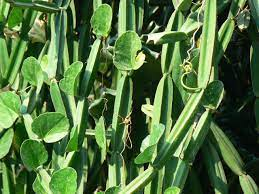NILAVEMBU (Andrographis paniculata)
Nilavembu (Andrographis paniculata), commonly known as
the “King of Bitters,” is a medicinal plant that is widely used in traditional
Ayurvedic and Siddha medicine. It has been used for centuries in India and
other Asian countries to treat a variety of illnesses and diseases. The plant
is known for its bitter taste and distinctive smell, and is often used in the
form of tea, decoction, or powder.
The active compounds found in Nilavembu have been
extensively studied and found to possess numerous health benefits. The main
bioactive constituents of this plant are andrographolide, deoxyandrographolide,
neoandrographolide, and andrographiside. These compounds are responsible for
the plant’s antiviral, antibacterial, anti-inflammatory, and antioxidant
properties.
Here are some of the uses of Nilavembu:
Fever: Nilavembu is
commonly used in traditional medicine to reduce fever. It is believed to work
by reducing inflammation and stimulating the immune system. It is often taken
as a decoction or tea.
Respiratory infections:
Nilavembu has been shown to have antiviral properties and is often used to
treat respiratory infections such as the common cold, flu, and bronchitis. It
is believed to work by inhibiting the replication of viruses and reducing
inflammation in the respiratory tract.
Digestive problems:
Nilavembu has been used to treat digestive problems such as diarrhea,
dysentery, and stomach ulcers. It is believed to work by reducing inflammation
in the digestive tract and protecting the lining of the stomach.
Liver disorders:
Nilavembu has been shown to have hepatoprotective properties, meaning it can
protect the liver from damage caused by toxins or viruses. It is often used to
treat liver disorders such as hepatitis and cirrhosis.
Skin diseases:
Nilavembu has been used to treat various skin diseases such as eczema,
psoriasis, and acne. It is believed to work by reducing inflammation and
promoting healing.
Diabetes: Nilavembu has
been shown to have hypoglycemic properties, meaning it can lower blood sugar
levels. It is often used to treat diabetes and its complications.
Cancer: Nilavembu has
been shown to have anticancer properties and has been used in traditional
medicine to treat various types of cancer. It is believed to work by inhibiting
the growth and spread of cancer cells.
Malaria: Nilavembu has
been shown to have antimalarial properties and is often used to treat malaria.
It is believed to work by killing the malaria parasites in the blood.
Inflammation:
Nilavembu has been shown to have anti-inflammatory properties and is often used
to treat inflammatory conditions such as arthritis and asthma.
Immune system support:
Nilavembu has been shown to stimulate the immune system and is often used to
prevent and treat infections.
In conclusion, Nilavembu is a versatile medicinal
plant that has been used for centuries in traditional medicine to treat a
variety of illnesses and diseases. Its numerous health benefits make it an
important natural remedy for many health conditions. However, it is important
to note that while Nilavembu is generally safe when used in appropriate doses,
it can cause side effects in some people. As with any medicinal plant, it is
recommended to consult with a healthcare professional before using Nilavembu.
HAPPY BLOGGING!!!
DEEPIKA KRISHNAMOORTHY
A RESEARCH SCHOLAR



Comments
Post a Comment